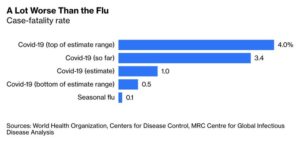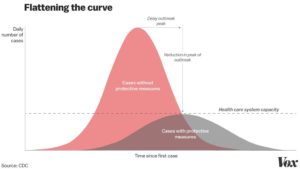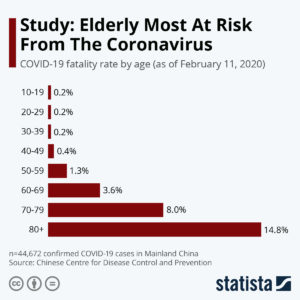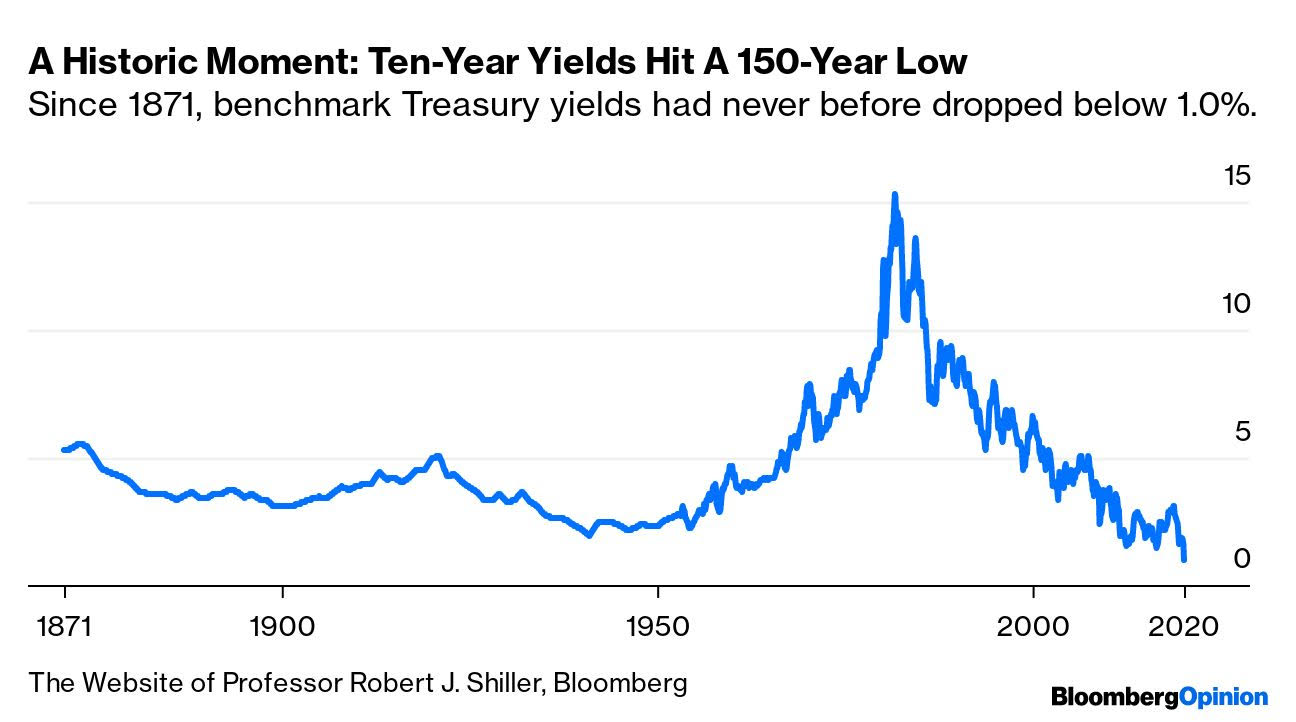 Reposted from 2009 – obviously, we do now have a pandemic.
Reposted from 2009 – obviously, we do now have a pandemic.
While I don’t think the current swine flu outbreak is all that likely to turn into a pandemic, I’ve had some requests to re-post my article on flu pandemic economics.
Overview
When I was approached to write about the economics of a flu pandemic, my first reaction was “What’s there to write about?” Because, in the normal terms that people consider personal economics (such as how to diversify your portfolio, and so on), there isn’t a lot to talk about. Most of the obvious losers (medical insurance companies, hospitals, airlines, freight companies) and so on will either be bailed out by the government afterwards or aren’t quite the obvious losers that they seem. There is, perhaps, an argument for investing in drug companies and medical supply companies, on the assumption of an increase in demand, not so much during the pandemic, but after it. However even that sort of play is dubious, because the reaction to how the system performs in any pandemic situation may not rebound to the benefit of private companies.
But economics isn’t really about the stock market, it’s about how rare assets are allocated. And as such, there’s a fair bit we can talk about when it comes to a pandemic.
First, let’s lay out the basic scenario. I am assuming a serious pandemic, with all non-essential travel shut down for the duration (kiss your vacation goodbye), with both infected individuals and any individuals who have come into contact with them instructed to quarantine themselves, or being forcibly quarantined.
I am also assuming a pandemic large enough to overwhelm the health systems in most countries which get hit. There are not enough beds, not enough ventilators, and most likely not enough anti-virals to go around in most countries. There certainly won’t be enough trained medical personnel.
The situation will be much like that in wartime. Government will concentrate on keeping key infrastructure operating. Power, sewage, water, emergency services, and food distribution. Distribution of most goods through the system will be discontinued, since people can be asymptomatic and still carriers, it will be decided to keep any cross-country travel to a minimum. Most retail outlets will close, either voluntarily or by government fiat. Food will be trucked either into distribution centers or into supermarkets which agree to stay open and will be rationed out exactly as in wartime. As such, a black market will certainly appear.
Preparations
If you think that such a pandemic is likely to occur, then the steps you should take are much the same you would take for any natural disaster. Because the banking system will likely shut down during the crisis (and bank machines will likely not be restocked even if they do not go down due to loss of system personnel) you should have a stock of money at home to allow you to buy whatever you need which is available. If you can arrange to have independent power generation, you should do so. You should have a good supply of canned food and water. Make your estimate of how much you need and double or triple it. Others will not have planned, and you do not want to find yourself not being able to help friends, family, and neighbors. In addition, you will want to have tradeables available for the black market. Money will be a poor second to having goods people want. In this regard, stocking up on some medical items such as surgical masks and OTC medicines will be especially wise. I’m not encouraging profiteering, but you will need something you can trade which people want. Badly.
In terms of personal finances, other than investing your money in survival goods like food, water, candles, kerosene lamps, and stoves and so on (in case of a power out), and taking some money out for use in buying what goods are available, there’s little to do. Make sure you have an up-to-date, written statement of your assets every month, so that if records are lost you can successfully argue with your bank/broker about what situation you were in.
Most stock markets will shut down for the duration of the crisis, either voluntarily or by government fiat. However, some may stay open. The action on those exchanges will be wild, and probably very depressing. Ignore it for the duration. Don’t sell, don’t buy unless you are a trader who knows exactly what you’re doing. Many companies will get bailed out after the pandemic is over, and what the stock price will be a year from the pandemic is impossible to tell.
The most important thing you can do before the actual pandemic starts is make sure your personal relationships with whomever you live with are in good shape, that you have a circle of friends and family you can trust and that you have a relationship with your neighbors and any important people in your neighborhood. Leaving aside personal health factors, one of the most import predictors for survival will be the strength of your social ties to others. You may need help. Almost certainly someone in your family or social circle will need help. Make sure it’s there, by making sure ahead of time that people like you and want to help you and can’t bear the idea of you suffering or dying alone.
During…
The primary economic effect of a pandemic will be the slowing of almost all non-related economic activity to a crawl or even a halt. The primary tool of public health in any pandemic situation will be quarantine and the primary goal will be slowing or halting the spread of the disease, not just within a given community, but from community to community. As such, both international and domestic trade, including trucking, train, and air freight, will take a phenomenal dive. Nothing that is not a necessity will travel. For all intents and purposes the official economy will be driven down to little more than essential services and the shipping of essential goods like food, medicine, and goods necessary to maintain essential services.
Don’t expect to be getting a paycheck during this period unless you work in an essential service. Most companies will either shut down voluntarily, be shut down by government fiat, or will operate with a skeleton staff. And don’t expect to be able to cash your check or get money out of the bank – odds are they’ll shut down and even if the ATMs stay up, they likely won’t be restocked with money.
What there will be is a black market. In situations like this there is always a black market. There’ll be people selling food, water, and medicines (a lot of the medicine will be fake) and medical supplies like masks. If you want or need any of these things, you’ll either pay though the nose or have to have something to barter. In general, I discourage people from getting involved in black markets. But you may not have a choice and if you don’t, then make sure you have something to barter with.
Because public transit will likely be either shut down or operating on a much-reduced schedule, consider how you’re going to travel if you need to. For urban types, a bicycle is good. For suburban types, make sure you have gas, because there will be, almost guaranteed, gas rationing and long lines for gasoline. Rural types are advised to store gasoline or diesel fuel.
After
The long term effects of a pandemic are hard to judge. It really depends on a few things: how many people die; what the demographic profile of those who die is, and; how the public reacts to the disaster.
In a situation with relatively light casualties, say one percent of the population, the world will go on. Everyone will know someone who lost someone, or will have lost someone themselves. But the bottom line, sad as it is, is that it won’t make a huge difference. Demand will drop and thus it won’t have a huge effect on employment one way or the other; it’ll reduce GDP noticeably, but not disastrously, and otherwise, it’ll be business as usual with sadness.
However, if we have heavy casualties, with the worst casualties inflicted on healthy people between the ages of 20 to 40 the effect will be quite noticeable. It will put a lot of pressure on increasing retirement ages, decreasing retirement benefits (as programs like SS are paid for by current workers) and will mean that countries will have to consider encouraging more immigration. There will be a significant demand shock and GDP will take a big enough hit to be noticeable. Because some things can’t be downsized proportional to the loss of population, the employment situation will probably be better than before (assuming it doesn’t throw us into a depression, which it might).
In either the low- or high-end casualty estimates, the government will either bail out or take over a lot of companies, including health insurers, airlines, and freight companies. The worse things are, the less likely it that companies will be bailed out. Government revenue will take a significant hit in these scenarios, but especially in the heavy casualty scenario, and they will not be able to bail out everyone.
But the real question regarding the long-term effect is how the public reacts. If the public and private health systems crack under the strain, and many people die who could have been saved, then the outcry is likely to be something fierce. Everything will be up for grabs – and it’s hard to say if it’ll lead to more public health care, the scalping of politicians, or the weakening of drug patent laws. It could lead to an end of health insurance companies and drug companies as we know them today – or, they could turn the tables and claim it was the public system that failed.
But it’s safe to say that there’ll be less travel, less trade, and more care taken to ensure diseases don’t spread in the future. Get used to being checked every time you cross a border, and don’t be surprised if you see a lot less foreign goods on store shelves.
The real economic fallout will be determined by politics, not economics, per se. The political decisions made will determine the fate of entire industries, and trade and travel for some time to come.
Politics almost always trumps economics.
The results of the work I do, like this article, are free, but food isn’t, so if you value my work, please DONATE or SUBSCRIBE.

 Reposted from 2009 – obviously, we do now have a pandemic.
Reposted from 2009 – obviously, we do now have a pandemic.
 Note that the fatality rate soars if the spread of the disease is not slowed, because if there are too many cases all at once, and hospitals are overwhelmed. The chart going around to illustrate this follows.
Note that the fatality rate soars if the spread of the disease is not slowed, because if there are too many cases all at once, and hospitals are overwhelmed. The chart going around to illustrate this follows. This virus specializes in older, unhealthy people. But young people are carriers, even if they don’t die. So if you don’t have to, you should probably be avoiding older people for the duration.
This virus specializes in older, unhealthy people. But young people are carriers, even if they don’t die. So if you don’t have to, you should probably be avoiding older people for the duration.

